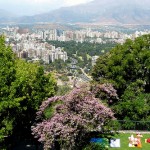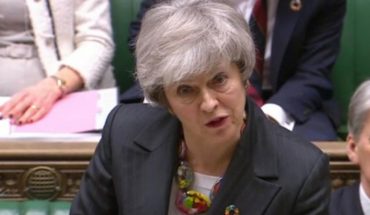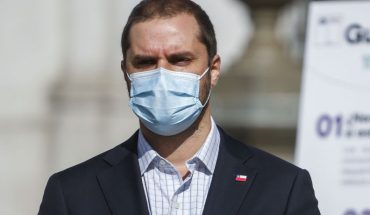
The current pandemic has removed the foundations of our society and economy, including some areas we had of course and even successful. This crisis has been so severe that it has led us to consider the validity of the model once again and to seek new alternatives that are more supportive and respectful. Urban parks can and should contribute to the long-awaited stage of socio-environmental redesign while helping in the imperative of maintaining minimal estrangement among people who other public places do not allow.
Urban parks have a recognized environmental role and the health of society. And although, this is a story already embedded in our collective awareness and our desires for dignity, unfortunately it still does not find short-term solutions, and with a long-term vision. But the role of urban parks, and how we make use of them, has more relevance than ever in times of pandemic. One wonders then, how access and use of public spaces such as urban parks in Chile has been managed. As a precaution they were immediately closed and have remained so invariably, without question. As far as I know this decision was one-sided and his current role has not been in the public discussion. The problem is that the point of limiting individual freedoms has been reached with conflicting criteria and without citizen consultation.
Currently in the world there are divided opinions on whether urban parks should be kept open or closed. For example, the global grouping of botanical gardens and the association of urban parks, although they emphasize the importance of urban parks for the health of society, recognize that the decision must be made based on local reality. This is how while there are many urban parks closed to public use, some others have been emphatic in their socio-environmental role and decided that the most important thing was to keep them open so that people could continue to use them. Their response was to take precautions and established protocols for proper access in order to reduce the risk of contagion.
It is no longer news that the response of the Chilean authorities has been unclear, clearly chaotic and with an embarrassing ignorance of the reality of many communes. Particularly exemplary have been the fallen cards of the former minister of health on the roofs of millions of overcrowded inhabitants in their homes and without public spaces available. Except for a few playgrounds, the city parks were closed. In fact, the housing and urban planning minister calls to denounce the neighbors if someone enters a park. It seems a good measure of citizen protection in the face of ignorance of the negative effects of allowing access. However, the first critical idea that arose to me was when the botanical garden of Valdivia and another of the parks of the city were closed precisely in the days that discussed the need to open the malls and supermarkets to keep the economy active. Paradoxically, Valdivia is fortunate to be the city with the most urban green areas per capita of Chile, two of them directly dependent on the University and still closed, while the city’s only mall is open. Where are the priorities I wonder.
It’s unusual for people to have less worry about going into the mall than using urban parks. But it is more outrageous to encourage the authorities to maintain consumer activities rather than outdoor activities where the main beneficiary is not the health of people, but to maintain the wealth of entrepreneurs. The moment of greatest outrage, and which led me to write, was when I read that people were being arrested for entering the San Cristobal hill to exercise. And even though they’ll go in for a smoke and have beers!! “I would gladly do it. To what extent individual freedoms can be challenged in this country. As it may be, it is allowed to enter enclosed spaces, with a large flow of public and with dubious health protocols. How can you punish these people who choose to exercise and not go to a mall to consume. How people who should be locked up in their homes daily have no choice but to go to consume. Something must change soon. Just as the safety protocols of these large consumer markets are accepted, because they do not generate the appropriate measures in parks where it is naturally easier to control the minimum distance required.
More ParqChile’s Urban Areas now, new “sacrificial zones” in cities for our future
In this country, they have declared the incredible logic “sacrificial zones” that involve environmental destruction and nearby human populations under the allegory of economic growth. Again this market logic leaves its mark. First of all I do not validate this mechanism of development, but it will be good then to start sacrificing areas in the cities and increase the socio-environmental goods of urban parks. Compensate the thousands of families crammed into social housing, without access to public parks and with a population density beyond what is recommended, this even before the pandemic. It seems that it is more profitable for the state and municipalities to overcrowd many families in a few square meters, or to allocate urban spaces to a factory, than to take care of the maintenance of the park. However, there are many studies that demonstrate both socio-environmental and economic benefits. For example, increasing small-scale local trade and tourism revenues. It has also been shown that people in urban parks can harvest medicinal fruits or plants for family consumption or marketing.
Today more than ever urban parks have a fundamental role in social welfare and there should be a policy that promotes access and increases green areas, ideally with forests of native species. Establish fifths with fruit trees, crops of medicinal and food plants for the free use of citizens. That is why I urge the Minister of Housing and Urban Planning, the municipalities, the universities with their parks and botanical gardens not to evade their role. Don’t let them get carried away by ignorance and comfort. And for those who do not know how to improve their management, who know that there are many citizens outside their political, economic and pseudo-intellectual oligarchies eager to contribute and make use of the few spaces that we have. I call on the authorities to allow their citizens to stay active without the need to buy, go to a restaurant or a cafe. That the revival of large companies is not the only motivation for this de-government and that for that reason the park managers work together with the respective health services to activate care measures together. Please open the park now.
The content poured into this opinion column is the sole responsibility of its author, and does not necessarily reflect the editorial line or position of El Mostrador.





